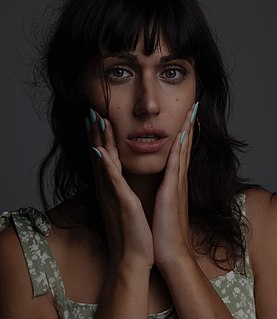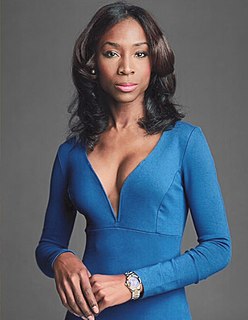A Quote by Trace Lysette
Now that I'm out there and it's known that I'm trans, I think that sometimes might hinder my opportunity in snagging a big cis role.
Related Quotes
It's not a cis-man becoming a cis-woman. It's a trans person just being who they want to be. This is how I've always felt, and this is who I've always been. But so much focus is put on the transition or the change because it's so visible. But that's not even what it is... That's who that person's been and who they are now.
There are cis women who are being attacked and called men because they are wearing makeup and because they are too tall, and they might have an Adam's apple. Once cis women start to realize it's not just harmful to trans women, then we'll start to come together more and attack this together. It sucks, but we're all under the patriarchy.
If I hadn't spent a big chunk of time in academia I might not have the depth of consciousness I do about ideas like that. I might think, for instance, that Freud was no big deal in terms of the shape of social organization then or now. I might think that the discourses of politics and law are real and stable and fair.
I think it's really important to champion stories from trans women and trans women of color. That demographic has gone unheard and unsupported for so long, and it's really the community that's struck the hardest by a lot of issues. I try to do a lot of work to champion trans feminine issues and stories, but that said, I do have a personal and deep investment in seeing trans masculine stories reflected in culture. It is a little disappointing to me that trans men and trans masculine people have not really been part of this media movement that we're experiencing right now.
Trans kids are living in the future in a way. When I was growing up, "transgender" wasn't even a word. It wasn't used. Just the naming of something that's invisible, or was thought of as shameful or different - giving it a name that's not a slur is powerful. It's still a little hard to imagine what it might look like growing older as a trans man, but I think that's going to change for the next generation. For trans kids growing up, that visual bridge towards their future selves is starting to develop in conjunction with this trans media wave we're in.






























